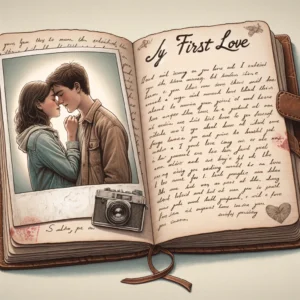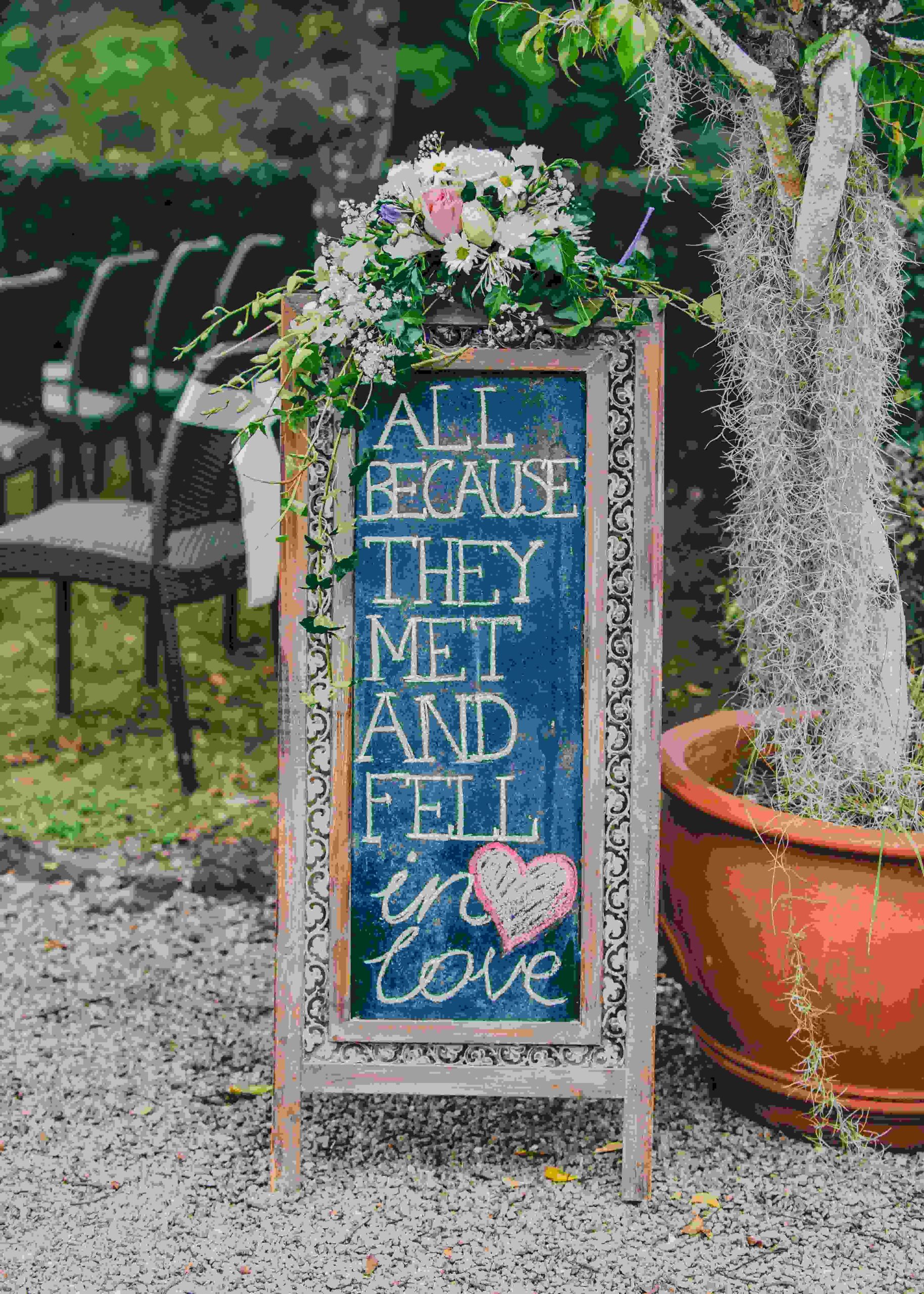That first flutter of the heart, the rush of excitement, the all-consuming infatuation – we never forget our first experience with love.
While it may have happened years ago, our first romantic relationship holds a special place in our memories.
More than just nostalgia, our first love plays a pivotal role in shaping our sense of identity.
Let’s explore how this transformative experience influences who we become.
Understanding the Psychological Impact of First Love
Why does first love have such a profound and lasting effect on us? To unravel this mystery, we need to understand the psychological factors at play.
The Imprint of Heightened Emotions
First love occurs during our formative years when emotions are often experienced more intensely. The euphoria of new love imprints itself deeply in our psyche. When it ends, the grief and pain scar our emotional landscape.
Positive or negative, these amplified emotions become woven into the tapestry of who we are. We relive them whenever that old love song comes on the radio.
The Quest For Self-Discovery
During first love, we are embarking on an exhilarating journey of self-discovery. We explore our desires, preferences, and boundaries. Our identity is still taking shape, making us more open to our partner’s influence. Their acceptance and approval profoundly impact our self-esteem.
Forging Models of Intimacy
As we figure out intimacy, commitment, and communication, our first serious relationship creates mental models that guide our expectations later. If met with care and respect, we learn to value ourselves. Otherwise, we internalize doubts and insecurities, often re-enacted in subsequent relationships.
The Mirror That Reflects Ourselves
Our first lover acts as a mirror reflecting back to us an image of who we are. We see ourselves through their adoring eyes. And when things fall apart, we are forced to reckon with our flaws and the emotional undercurrents lying beneath.
By illuminating previously unseen aspects of ourselves, first love becomes a catalyst for self-discovery and growth.
Signposts From The Past: Patterns That Reveal Our True Self

While the memories may be roses-tinted, examining our first love objectively can unravel significant insights. Let’s explore key patterns that may emerge and what they indicate about us:
What We Find Attractive Reveals Our Needs
The qualities that draw us to our first love highlight unfulfilled needs within us. If we are seeking safety and comfort, we may choose stable, caring partners. If we crave excitement, we opt for the bold and unpredictable.
Understanding these attraction patterns reveals our core emotional needs.
The Dynamic Reflects Our Boundaries
The interpersonal dynamic with our first love offers clues to our boundaries. Were we comfortable asserting our needs? Did we feel empowered or diminished? The level of support and respect we expect mirrors the way we view ourselves at the time.
Emotional Wounds Signpost Vulnerabilities
When love goes sour, our most significant emotional wounds often get triggered. Someone dismissive may awaken abandonment trauma. Criticism can stir up deep inadequacies. Mapping these pain points illuminates areas of unhealed hurt and self-doubt.
What We Accept Reveals Our Self-Worth
How we expect and allow ourselves to be treated indicates our sense of self-worth. Tolerating possessiveness or cruelty may point to an impoverished inner self needing validation. Respecting ourselves enough to walk away shows a foundation of worthiness.
Reasons For Breakup Expose Growth Areas
Why the relationship ended provides clues for self-improvement. Recurring infidelity may signal an inability to empathize with another’s needs. Frequent arguments could mean poor communication skills. Identifying these growth areas allows us to become better partners.
By examining the interpersonal patterns at play, we gain penetrating insights into who we were at that stage and how it still echoes through us.
Lessons From the Heart: How First Love Shapes Our Personality
While first love provides a snapshot of who we were, it also profoundly influences who we become. The ecstasies and agonies of that earliest romance will shape us in ways subtle and profound:
Ideals Are Born
When we fall in love for the first time, we pour our highest ideals into the beloved – hopes of eternal joy and fulfilling intimacy. When reality fails to match this impossible fantasy, these ideals remain imprinted within, becoming the measure for all future relationships.
Confidence Takes Root

Navigating the rollercoaster of first love requires developing emotional skills – communicating needs, resolving arguments, and rebounding from hurt. Mastering this equips us with the confidence to create authentic connections. Without this learning experience, we remain stuck in insecure reactive patterns.
Maturity Emerges From Mistakes
We never forget the times our first love left us crushed but making mistakes forges maturity. Discovering boundaries, learning forgiveness, gaining perspective – this emotional wisdom gently shapes us into our best selves. It turns youthful certainty into compassionate understanding.
Empathy Opens Our Heart
Truly knowing another’s hopes and sorrows dissolves our self-absorption. The intimacy of young devotion awakens empathy within us. Even when it ends bitterly, having once opened our heart leaves it forever changed. A piece of our partner’s humanity remains with us.
Resilience Is Tested
First love plunges us into the depths of despair but also teaches resilience. In working through the grief of a broken heart, we develop emotional muscles to handle life’s hardest blows. Along the way, we learn we are stronger than we realized.
While often bittersweet, these lessons in relating become the foundation for maturity, wisdom and self-knowledge.
Unveiling Our Authentic Self: Insights From Reflection
Returning to dusty memory lanes may sting but reflecting objectively on our first love provides penetrating insight into our truest self. Here are some key questions for guidance:
- What drew me in initially about this person? What emotional needs were met? Understanding our attraction patterns reveals core desires.
- How did I feel about myself in the relationship? Empowered or insecure? The level of confidence shows our self-regard.
- What behaviors and traits did I tolerate or accept? This indicates the way we value ourselves.
- How did the relationship dynamic align with my values and boundaries? Examining clashes with our inner truth illuminates areas for growth.
- What emotional wounds or insecurities got triggered? Mapping these allows for self-compassion and healing.
- What life lessons did I learn from this experience? Recognizing areas of growth shows evolution.
By exploring these questions, we begin to unveil our true identity at that time. The parts that resonate with our present self reveal core aspects of who we are. Places of divergence show how we have grown.
Integrating The Past Into Our Present Self

While transformative, dwelling on the fading starlight of first love can also be limiting. Our sense of self has expanded over the years through new challenges and insights. How do we honor the past without remaining tethered to it?
Forgiveness Of Self And Other
To fully integrate first love’s gifts, we must practice forgiveness – for naïve mistakes, unintended hurts, and imperfections. We honor the journey by releasing shame and resentment. This frees us to embrace the learning.
Accepting Our Evolution
First love anchors us in who we were. But life keeps inviting us to grow. Noticing how we have changed re-centers us in the present. We honor our growth while valuing that early experience.
Choosing Consciously Now
By reflecting on the past, we understand repetitive patterns that no longer serve us. This empowers us to make wiser choices – picking partners who align with our mature self and creating relationships that nurture our soul.
Recognizing Essential Aspects
While we evolve across our lives, essential aspects remain. Our core values, emotional needs, and boundaries hold steady. First love illuminates these facets of identity for conscious integration.
By practicing reflection, forgiveness and conscious action, we distill first love’s gifts while still staying rooted in our present-day selves.
Conclusion: First Love As A Guide Through The Self
Revisiting first love may bring up moments of joy, regret, humour and grief – an emotional tapestry capturing a pivotal chapter in our lives. While often bittersweet, reflecting on that earliest romance provides a window into our emerging identity.
The vulnerable youth, blossoming idealist,and bruised but wiser person we were – each one remains a part of our selfhood’s collective. Honoring their connection to us, while still evolving into our present-day wholeness, allows for genuine self-understanding.
First love shapes us in profound ways – some visible, some subtle. By exploring it with the eyes of maturity, we unlock an inner mirror to illuminate our essence and chart the paths of ongoing growth.

